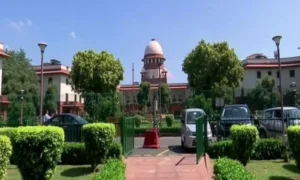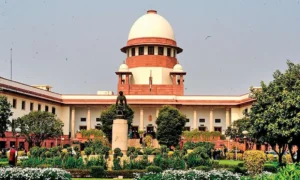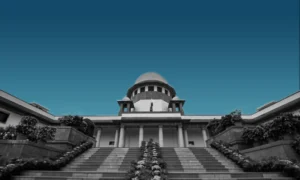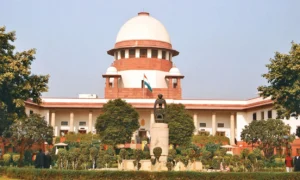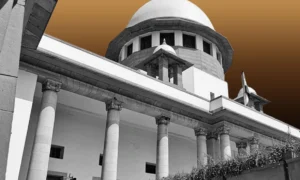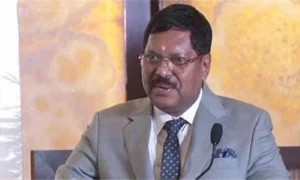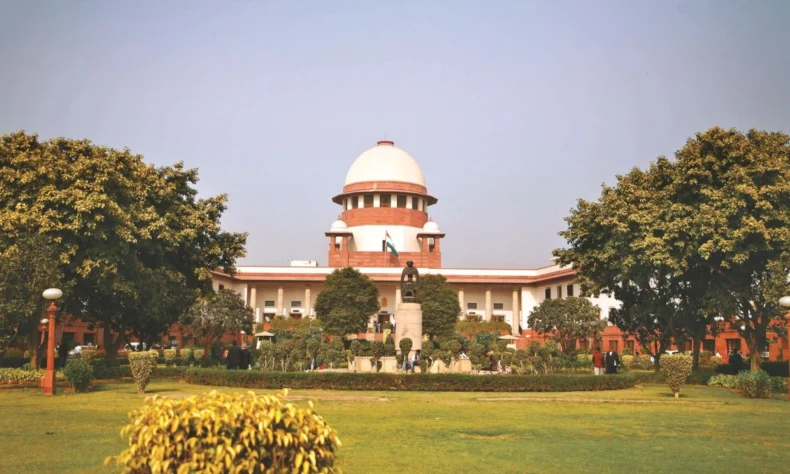
In a striking development that has sent ripples through India’s legal community, the Supreme Court has ordered an official inquiry after Justice Sharad Kumar Sharma, a judicial member of the National Company Law Appellate Tribunal (NCLAT), alleged that a senior figure from the higher judiciary attempted to influence his decision in an ongoing case. The judge made the disclosure in open court on August 13, 2025, while recusing himself from an insolvency appeal related to KLSR Infratech Ltd.
Justice Sharma revealed that he had been approached by a person he described as a “most revered member of the higher judiciary,” who sought a judgment in favour of one party. While he did not name the individual, the reference has raised serious questions, as it is understood to mean someone from the High Court or the Supreme Court itself.
The case involved A. S. Reddy, the suspended director of KLSR Infratech, who was challenging the initiation of corporate insolvency proceedings brought by AS Met Corp before the National Company Law Tribunal in Hyderabad. Arguments in the case had concluded in June, and a final order was scheduled to be delivered on August 13.
However, instead of pronouncing judgment, Justice Sharma recused himself and directed that the matter be placed before the Chairperson of the NCLAT for reassignment, citing the attempted interference as the reason for his withdrawal. This act not only stalled the verdict but also exposed what appears to be a deep and troubling breach of judicial propriety.
Responding swiftly to the gravity of the allegation, the Supreme Court on August 27 directed its Secretary General to conduct a fact-finding inquiry into the matter. The apex court’s move is viewed as a clear attempt to protect the sanctity of judicial processes and ensure accountability within the system, especially given the seniority of the individual allegedly involved. While no timeline has been made public, the inquiry is expected to focus on verifying the communication and identifying the person who attempted to reach out to Justice Sharma.
This is not the first time Justice Sharma has taken such a step. In recent months, he has recused himself from multiple cases on similar ethical grounds. In June 2024, he withdrew from a case involving Ramalinga Mills after one of the respondents allegedly attempted to contact him. Later in November 2024, he stepped away from a dispute concerning Jeppiar Cements, revealing that his own brother had texted him in an attempt to delay proceedings.
Earlier that year, he also recused himself from an insolvency petition involving edtech company Byju’s, citing prior associations with one of the parties. These consistent recusals signal his firm stance on judicial integrity but also reveal a worrying trend of behind-the-scenes pressure faced by members of adjudicatory bodies.
The present case is particularly alarming because it suggests that such influence may not be limited to litigants or their representatives, but could potentially extend into the judiciary itself. The allegation strikes at the heart of the judiciary’s independence, raising concerns not just about this one incident but about the safeguards that exist—or don’t—to protect tribunal members from undue pressure. The Supreme Court’s decision to step in, rather than pass the matter to any executive or disciplinary body, sends a strong message that even the perception of influence from within the system will not be tolerated.
Legal observers have welcomed the move, though many believe this incident should act as a catalyst for broader reform. There is growing support for more robust mechanisms to handle judicial recusals, clearer codes of conduct regarding communications with judges, and stronger protection for judicial officers in tribunals who may not enjoy the same institutional insulation as those in constitutional courts.
As the legal fraternity awaits the outcome of the Supreme Court’s fact-finding exercise, the broader question looms large: how deeply does this culture of influence run, and what steps will be taken to restore public faith in the system? The answer, many feel, will not lie in one inquiry alone but in the judiciary’s willingness to confront uncomfortable truths and enforce its own standards—no matter how high the person involved.
📰 Crime Today News is proudly sponsored by DRYFRUIT & CO – A Brand by eFabby Global LLC
Design & Developed by Yes Mom Hosting

